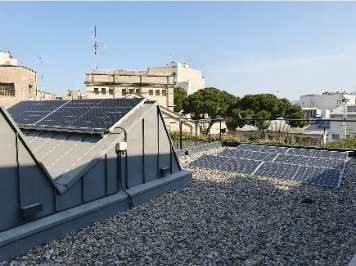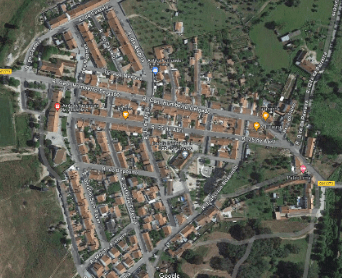Local Energy Communities (LECs) play a pivotal role in the green energy transition. Using an energy data space provides opportunities for innovation and research in this domain, as communities can explore new technologies, test innovative solutions, and contribute to the development of best practices. Moreover, enhanced visibility into energy data allows energy communities to optimize the use of renewable resources, storage systems, and other energy assets, reducing waste and maximizing efficiency as well as cost saving.
As for the interoperability aspect, it will enable collaboration and information sharing among different energy communities, promoting collaboration on energy projects, joint procurement, and the development of collective solutions. Transparent access to energy data fosters community engagement by involving residents in energy-related decisions and initiatives increasing in this way awareness and involvement and leading to greater community support for sustainable practices and energy conservation.
4 pilot sites
OMEGA-X will support LECs in making informed and data-driven decisions regarding energy consumption, production, and management empowering them with valuable insights, collaboration opportunities, and tools for optimizing energy management, thereby contributing to sustainability, cost-effectiveness, and overall community well-being. This use case family consists of 4 different pilot sites in term of typology, maturity level, management and regulation:
- Local Energy Community in Osimo, Italy

The Osimo Energy Community, overseen by ASTEA, aims to optimize intervention, management and consumption of water distribution, district heating systems and electrical grid. This pilot site’s core focus is on implementing comprehensive data services that leverage the concept of the LEC aiming to optimize energy consumption and dispersion across thermal, water, and electrical domains, reduce environmental impact and promote decarbonization.
By bringing together several stakeholders and employing advanced data services, it seeks to improve maintenance interventions and energy consumption.
- Local Energy Community in Granollers, Spain
The Granollers pilot site consists of IMPULSA’s premises with several smart meters from the different offices, PV (photovoltaic) solar panels integrated on the rooftops and a battery. The activities of this pilot will be focused on three main aspects:

1) Test different methods to maintain the energy quality and methods of grid reinforcement for the distribution grid due to the formation of LECs and the inclusion of EV (electrical vehicles) and PV systems;
2) Design of potential new LECs;
3) Optimize energy flows in self-consumption schemes.
- Local Energy Community in Belgrade, Serbia

The pilot on this Serbian R&D campus represents an energy community comprising separate legal entities within the Institute Mihajlo Pupin (PUPIN) as well as external legal entities, which share common energy supply (both conventional and renewable), storage and dispatch infrastructure. The main objectives of the pilot are to establish an environment where different OMEGA-X LEC services can be tested, explore a variety of strategic options for becoming a Zero Emissions LEC by 2050 and test the previously developed PUPIN services with the newly collected data.
4. Local Energy Community in Evora, Portugal

The Evora pilot site, managed by EDP as Energy Community Operator, provides data about monitoring decentralized production and injection systems, and consumption and self-consumption per client. The purpose is to implement and test a set of services proposed by OMEGA-X about the definition of the optimal consumers configuration to maximise auto consumption while increasing economic benefits and to involve LEC users though a gamification approach.
LEC use case family
In this LEC use case family, a set of Data Analytics Services will be developed and validated, leveraging data from different community actors and supported by the common European Energy Data Space:
- Thermal Losses detection and benchmarking at LEC level
- Water losses detection and benchmarking at LEC level
- Electrical losses detection and benchmarking at LEC level
- Detect and correct measurement errors
- Gamification for electrical energy savings
- Local energy communities designer
- Optimizing sharing coefficients in collective self-consumption
- Optimizing self-consumption of renewable energy at LEC level
- Planning services
- Reinforcement plan of LECs for future renewable integration
These services aim to provide solutions based on data collected from different sources and suppliers:
- to optimize LEC operations within and between communities;
- to define the LEC process from formation to management due to the active collaboration of each participant;
- to compare transactions under similar conditions;
- to identify potential inefficiencies;
- to optimize O&M (Operation and Maintenance) practices and contribute to the decision-making process for establishing energy demand profiles;
- to optimize energy infrastructure future investments and provide different alternatives to improve energy efficiency and flexibility management;
Apart from the business perspective, one of the main aspects of this use case family is the focus on social impact and the promotion of customer participation in energy saving and decarbonization.